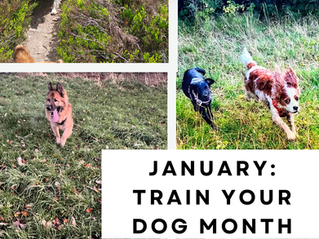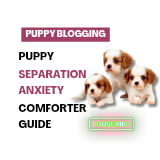Beyond the Honeymoon: Navigating Challenges and Deepening the Bond with Your Dog
- May 6, 2023
- 2 min read
Updated: Feb 20, 2025

The honeymoon period with your new dog is a delightful chapter filled with joy, discovery, and the building of a strong bond. However, as the initial excitement settles, you may encounter new challenges that are part of the natural progression of your canine companion's integration into your life. In this post, we'll explore what to do when the honeymoon period is over, the potential issues that may arise, and practical strategies to address and resolve them.
1. Recognising the Transition: The end of the honeymoon period marks a transition from the initial euphoria to a more settled routine. You may notice changes in your dog's behaviour as they become accustomed to your home and routines. This is a natural part of the adjustment process.
2. Common Issues Post-Honeymoon:
Behavioural Changes: Your dog's behaviour may shift, and they might test boundaries.
Separation Anxiety: Some dogs may exhibit signs of separation anxiety once the initial novelty wears off.
Training Challenges: Commands that were easily learned during the honeymoon phase might be tested.
Energy Levels: The initial burst of energy may normalise, requiring adjustments to exercise routines.
3. Strategies to Address Behavioural Changes:
Consistency is Key: Maintain consistency in rules, routines, and expectations to provide stability.
Reinforce Training: Continue positive reinforcement and training to address new challenges.
Provide Mental Stimulation: Engage your dog with puzzle toys and interactive games to keep them mentally stimulated.
Introduce New Activities: Keep your dog's routine varied by introducing new activities and experiences.
4. Addressing Separation Anxiety:
Gradual Departures: Practice leaving your dog alone for short periods and gradually increase the duration.
Create a Comfortable Space: Designate a cozy area for your dog with their bed, toys, and familiar items.
Use Enrichment Toys: Provide toys that dispense treats or engage your dog's attention to ease anxiety.
5. Handling Training Challenges:
Back to Basics: Revisit basic commands and reinforce them with positive reinforcement.
Consistent Training Schedule: Maintain a consistent training schedule to reinforce good behavior.
Patience and Positivity: Be patient and use positive reinforcement even if progress seems slow.
6. Adjusting to Normalised Energy Levels:
Adapt Exercise Routine: Adjust your dog's exercise routine to match their current energy levels.
Mental Stimulation: Incorporate mental stimulation activities to keep your dog engaged.
Regular Check-ups: Ensure your dog's health is in check, as changes in energy levels could indicate underlying issues.
7. Strengthening the Bond:
Quality Time: Spend quality time bonding with your dog through play, walks, and cuddles.
Explore New Activities: Introduce your dog to new activities or classes to keep the bond strong.
Routine Variations: Occasionally vary routines to keep things interesting for your dog.
8. Seeking Professional Help:
Consult with a Trainer: If challenges persist, consider consulting with a professional dog trainer for guidance.
Veterinary Advice: Discuss any persistent behavioural changes with your veterinarian to rule out potential health issues.
While the end of the honeymoon period may bring new challenges, it's an opportunity to deepen the bond with your dog. Addressing behavioral changes, adapting routines, and maintaining a positive, consistent approach will contribute to a strong and enduring relationship. Embrace the evolving dynamics with patience, love, and a proactive mindset, and you'll find that the post-honeymoon phase can be just as rewarding as the initial stages of your journey with your beloved canine companion.











Comments